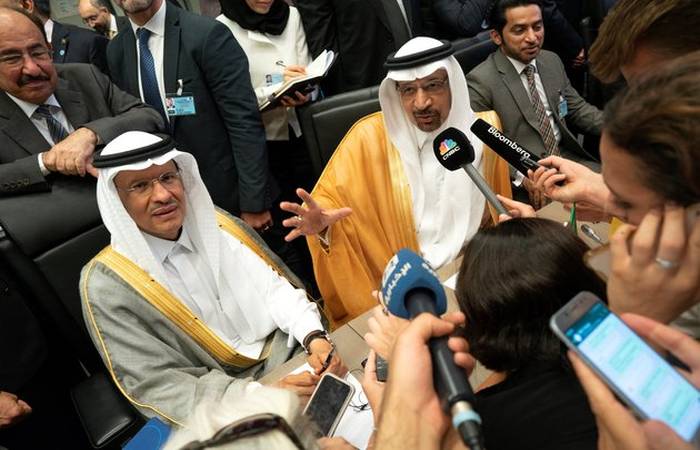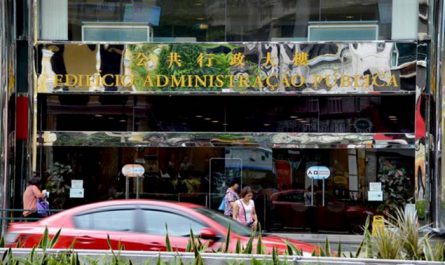RIYADH – Saudi Arabia’s King Salman on Sunday replaced the energy minister with one of his sons, state media said, in a major shakeup as the OPEC kingpin reels from low oil prices.
The appointment of Prince Abdulaziz bin Salman, half-brother to de facto ruler Crown Prince Mohammed bin Salman, marks the first time a royal family member has been put in charge of the all-important Energy Ministry.
He replaces veteran official Khalid al-Falih as the world’s top crude exporter accelerates preparations for a much-anticipated stock listing of state-owned oil giant Aramco, expected to be the world’s biggest.
“Khalid al-Falih has been removed from his position,” the official Saudi Press Agency said, citing a royal decree.
“His royal highness Prince Abdulaziz bin Salman is appointed minister of energy.”
Since his appointment as oil minister in 2016, Falih has been the face of Saudi energy policy but the veteran technocrat had seen his portfolio shrink in recent weeks.
His ouster comes just days after he was removed as chairman of Aramco and replaced by Yasir al-Rumayyan, governor of the kingdom’s vast Public Investment Fund.
Falih’s powers were diminished last month when the world’s top oil exporter announced the creation of a new ministry of industry and mineral resources, separating it from his energy ministry.
It was widely speculated that top officials were dissatisfied with Falih as oil prices sagged ahead of the Aramco IPO.
Economic uncertainty fanned, by an ongoing US-China trade war, has dragged Brent crude prices to around $60 a barrel in recent weeks, well below the $85 mark that experts say is needed to balance the Saudi budget.
‘Seasoned veteran’
The OPEC petroleum exporters’ cartel and key non-OPEC members are scheduled to meet in Abu Dhabi on Thursday to review their strategy on limiting production to halt a slide in prices.
Cartel kingpin Saudi Arabia, which pumps around a third of OPEC’s oil, has resorted to massive production cuts to lift prices since the market crash in mid-2014.
It was unclear whether there would be a change in policy under Prince Abdulaziz, who joined the oil ministry in the 1980s and has held a variety of senior roles.
“Prince Abdulaziz is a very seasoned veteran of Saudi and OPEC policy making,” Bob McNally, president of Rapidan Energy Group, told Bloomberg News.
“He won’t have a learning curve. I don’t expect any big rupture in current Saudi oil policy.”
His appointment further concentrates power within the king’s family. His other son, Prince Mohammed bin Salman, controls the major levers of power and is heir to the Arab world’s most powerful throne.
A younger son, Prince Khalid bin Salman, is deputy defense minister.
Aramco is stepping up efforts to float around five percent of the company, seeking to raise up to $100 billion based on a $2 trillion valuation of the whole firm.
But low oil prices have left some investors in doubt that Aramco is really worth that much.
Failure to reach a $2 trillion valuation as desired by Saudi rulers is widely considered the reason the IPO, earlier scheduled for 2018, was delayed.
The planned IPO forms the cornerstone of a reform program envisaged by Crown Prince Mohammed bin Salman to wean the Saudi economy off its reliance on oil.
Saudi Aramco has not announced where the listing will be held, but London, New York and Hong Kong have all vied for a slice of the much-touted IPO.



